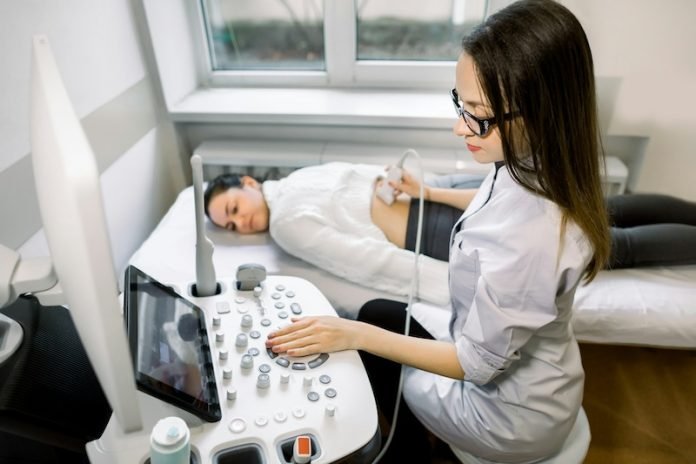
In the world where chronic kidney disease (CKD) affects a staggering 10% of people globally, a big advancement comes from The Hong Kong Polytechnic University (PolyU).
The disease, known for its stealthy progression towards renal failure, has long posed a challenge for early detection and effective monitoring.
Enter Smart-CKD (S-CKD), a pioneering non-invasive diagnostic tool that promises to transform the way CKD and, more specifically, renal fibrosis, is managed.
Developed by a dedicated team from PolyU’s Department of Health Technology and Informatics, S-CKD marries ultrasound data with key clinical variables to assess the risk of moderate-to-severe renal fibrosis progression.
This innovative approach has shown a promising diagnostic efficiency of 80%, a significant stride towards better patient outcomes.
Published in Academic Radiology, this research underscores the critical importance of early diagnosis and precise staging in managing renal fibrosis.
Traditionally, the go-to method for diagnosing and staging this condition has been the renal biopsy—an invasive procedure with its share of limitations and risks. S-CKD emerges as a beacon of hope, offering a safer, more accessible means to monitor the disease’s progression.
The tool leverages machine learning to analyze three clinical parameters: the patient’s age, ultrasonic renal length, and the end-diastolic flow velocity of the interlobar renal artery.
This information aids doctors in making informed decisions about treatment strategies, aiming to delay or prevent the exacerbation of the disease.
S-CKD stands out not just for its technological innovation but also for its user-friendly design. Available as an online web-based platform or an offline document-based format, it integrates seamlessly into routine clinical practices, making advanced diagnostic capabilities accessible to a wider range of healthcare professionals.
Looking ahead, the team at PolyU, led by Prof. Michael Tin Cheung Ying and Dr. Ziman Chen, in collaboration with Dr. Zhongzhen Su from The Fifth Affiliated Hospital of Sun Yat-sen University, plans to expand their research.
They aim to further validate S-CKD’s effectiveness in prospective clinical studies, leveraging the cutting-edge medical technology and facilities available within the Greater Bay Area and Hong Kong.
As the world commemorates World Kidney Day on March 14, the team at PolyU hopes their innovation will not only shed light on the importance of kidney health but also mark a significant advancement in the fight against chronic kidney disease.
With S-CKD, they envision a future where early prevention and precise management of CKD become a reality, offering new hope to millions affected by this silent epidemic.
If you care about kidney health, please read studies about pesticide linked to chronic kidney disease, and this drug may prevent kidney failure in people with diabetes.
For more information about kidney health, please see recent studies about drug duo that may treat kidney failure, and results showing these vegetables may protect against kidney damage.
The research findings can be found in Academic Radiology.
Copyright © 2024 Knowridge Science Report. All rights reserved.




